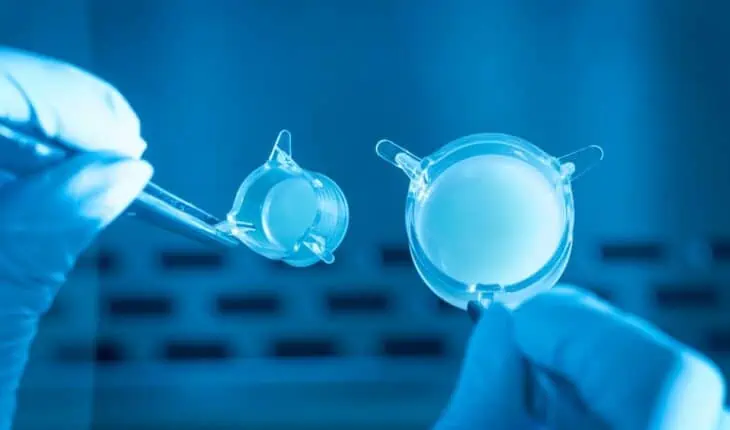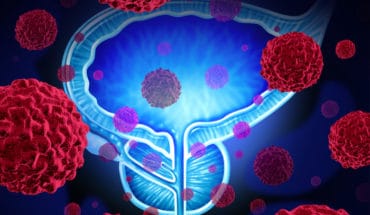In a major breakthrough for research into skin health and the development of skincare products, UK-based Labskin and the University of Bradford’s Centre of Skin Sciences announce the first-ever commercially available lab-grown ‘pigmented’ skin-equivalent has been developed.
In a joint project, scientists have been able to incorporate melanocytes – the cells that give skin its pigment – into Labskin’s full thickness human skin models that naturally mimic the skin’s microbiome.
Labskin is the pioneer in the development of laboratory grown human skin equivalents. The world’s leading consumer health and skincare companies use Labskin and its artificial intelligence-driven data analytics for research and testing the efficacy and impact of skin care product formulations on the skin microbiome. Labskin has conducted thousands of tests on skin care products, cosmetics, health care, drug delivery and wound care.
Several scientific publications have demonstrated that skin of different ethnicities present different microbiomes. These new ‘pigmented’ models incorporating melanocytes allow Labskin to further assess safety and efficacy of skincare ingredients and formulations on a greater diversity of skin types, integrating ethnic skin with various microbiomes.
The presence of melanocytes on the skin model also permits the study of causes and alleviation of hyperpigmentation, creates an ideal model to study UV exposure response and phototoxicity, and opens the door to establish reproducible melanoma models for the pharmaceutical industry.
Known as ‘Labskin M’, the new, commercially available ‘pigmented’ skin model is a result of the Knowledge Transfer Project (KTP), a UK government program established to encourage collaboration between business and universities. Funding was provided by Labskin and Innovate UK), which provides support to organisations to make new products and services.
Dr Sobia Kauser, Assistant Professor in the Faculty of Life Sciences, said: “Working on the Labskin M project has provided me with an amazing opportunity to utilise my knowledge and expertise in melanocyte biology in the development of this pigmented skin equivalent. There is an unquestionable need for developing superior skin equivalents not only to identify and evaluate skin pigmentation modulators but also to use this technology for regenerative medicine for personalised skin grafts. The Labskin M also has great potential in the cosmetic and dermatology industry.”
Dr Jacobo Elies Gomez, Academic supervisor and Assistant Professor in pharmacology in the Faculty of Life Sciences at the University of Bradford said: “Labskin M represents a state-of-the-art organotypic model for the investigation of the biology and cellular behaviour of melanocytes in health and disease.
“There is no other commercially available system of lab-grown skin that includes melanocytes. This opens up huge opportunities for research and could lead to new discoveries, for example with skin cancers. Being able to offer this commercially makes it much easier for other sectors to become involved.”
Dr David Caballero-Lima, Head of R&D Labskin said: “This new model is allowing us and our clients to get a deeper understanding about melanin production in healthy and pathological stages, skin toxicology, drug metabolism and the host microbe interaction. It’s a critical development for the cosmetics and dermatological sectors to provide even more precise testing platforms to deliver first class, safe and efficacious products.”
Prof Julie Thornton, director of the Centre of Skin Sciences, added: “Our work with Labskin is really leading the way in new cutting-edge technology for human skin biology and the skin microbiome, with the advancement of superior ex vivo human skin models. Labskin M is a major development for the industry and one we’re very excited about.”
Post doctoral scientist and KTP associate Dr Omera Bi, who graduated with a first-class honours in Biomedical Science from the University of Bradford in 2016 and went on to complete a PhD in molecular biology at both Bradford and Huddersfield universities, said: “I have thoroughly enjoyed creating the pigmented 3D equivalent skin cell model, an amazing personal achievement for me. This is the first time melanocytes have been incorporated into a 3D skin cell equivalent. I am super excited about the developments Labskin M will be able to make to the industry and it is a great privilege to be part of a huge project.”
Deepverge
Deepverge is an environmental and life science group of companies that develops and applies artificial intelligence and ‘the internet of things’ technology to analytical instruments for the analysis and identification of bacteria, viruses and toxins. Utilizing artificial intelligent data analytics to scientifically prove the impact of skincare product claims on skin microbiome for most of the top 20 global cosmetic company clients and remotely detect and identify in real-time, dangerous pathogens Labskin (Life Science Division of Deepverge)in wastewater treatment plants, drinking water, rivers, lakes and reservoirs.
Labskin has been pioneering the development of a laboratory grown human skin platform for more than 15 years and is the only commercially available lab-grown full thickness human skin model that naturally mimics the skin’s microbiome. With top 20 global consumer health and skincare clients, thousands of industry tests, the good and bad bacteria that naturally exists on human skin is present on Labskin when testing skin care, cosmetics, health care, drug delivery or wound care products.
The Labskin test platform and protocols help clients maintain an optimum real-world environment, when testing their new ingredients and existing skincare products, that shows the positive or negative impact on skin’s natural microflora. Labskin also recently announced that the future of personalised skincare will be available in the US in late summer with the launch of the Skin Trust Club, the first-ever app-driven skin microbiome home test kit and skin health tracking platform.
Centre for Skin Sciences
The University of Bradford has already established itself as a leading center of expertise on the skin microbiome. Its leadership, under Prof Julie Thornton, of the multi-disciplinary UKRI-funded Skin Microbiome in Healthy Ageing (SMiHA) project, one of 11 new networks funded by BBSRC/MRC providing the largest exploration of ageing science in the UK’s history, will help drive capacity for research and innovation in the UK.
- Gut microbiome could delay onset of type 1 diabetes - 3rd April 2025
- The da Vinci 5 Robot Is Set To Transform Bariatric Care: - 31st March 2025
- Beyond money: the hidden drivers fuelling child food insecurity - 31st March 2025






